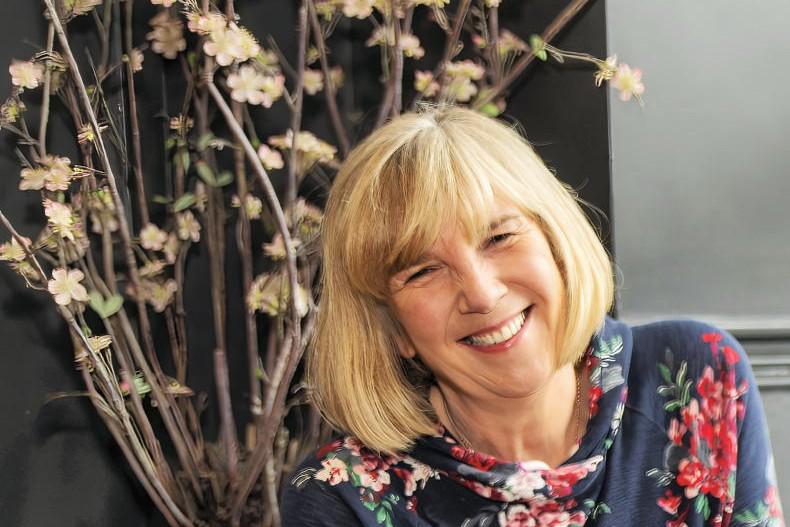Siobhan, aged 35 and single, came to see me some years ago for depression. She had felt this way for years and it affected her relationships with men. The thinking dynamic in depression is a general feeling of just not ?being good enough, seeing yourself as a failure no matter what you do. As Siobhan described her problem to me, I could see that she kept alternating between her low self-image and still being single at 35.
Sure, she had had many casual relationships over the years, but for some reason, they just never worked out. Whenever she met a man and there was mutual attraction, things would be great for a while but unfortunately, his interest would wane and after a while he would drift away.
I asked if there were any other men in her life that might be looking for something more than just a sexual relationship. Siobhan said that she was friends with a lot of men who were nice. Unfortunately, she felt that none of them were attracted to her romantically and: because of this, kept them in the friend zone.
I asked her where she got the idea that these men were not attracted to her. They were nice lads and she liked most of them, but because they had never made a pass at her, nor tried to flirt with her, she presumed that they weren’t interested.
As a homework exercise, I asked her to watch guys’ reactions to her the next time she was out. Were they glad to see her when she arrived? Did they appear warm with her? Did they feel relaxed in her company? Did they seek her out for a bit of a chinwag?
At the following session Siobhan reported that, yes, a few of her male friends did indeed tick those boxes. I then let her in on one of the biggest mistakes that women make about men.
Men who are interested in building a relationship with you are NOT the ones trying to have sex with you; they are the ones who are friends with you, but don’t move it any further because they think that you are not interested in them. What do I mean? Well to answer that, let me introduce you to the love hormone and how it affects women and men differently.
What is oxytocin
Oxytocin is a chemical most women are familiar with. It is produced in the brain during sex, childbirth and breast-feeding. It’s also the key to bonding, as it increases levels of empathy. Oxytocin, dopamine and serotonin are often referred to as our “happy hormones”. When you’re attracted to another person, the brain releases dopamine, serotonin levels increase and oxytocin is produced. This causes you to feel a surge of positive emotion and your heart to race when you feel attracted to someone.
While he can have sex and not bond, she can’t. So, while he is playing the field, she is falling in love with the players
Most importantly, releasing oxytocin builds trust, empathy and fidelity. And this goes for men as well as women. In men, releasing oxytocin causes them to view their partner as more attractive than other females and is key to building fidelity. Therefore, the more oxytocin a man releases, the more distance he will keep from other attractive females.
How does this help us establish relationships?
How we secrete oxytocin is dependent on gender. Women produce oxytocin during non-sexual and sexual intimacy. However, men only produce it during non-sexual intimacy. During sex, men switch off the oxytocin and switch on the dopamine.
This means that when a woman has sex with a man, she is much more likely to fall in love with him than he is with her. However, her body can’t distinguish whether the person she is with wants only a casual fling or is marriage material as oxytocin is released either way.
So, while oxytocin will help a woman bond with her partner, it also makes it very difficult for her to have sex without bonding with him. This is why women will frequently feel incredibly miserable when a short-term relationship ends.
On the other hand, when men have sex, they release a surge of dopamine, the pleasure hormone. This means that when he meets you, he will go for the dopamine hit and will want to have sex with you more rapidly.
Unfortunately, the more dopamine he secretes, the less oxytocin. So, the more sex he is having with you, especially at the start, the less bonding he is building with you. He is either having sex, or bonding, not both.
While he can have sex and not bond, she can’t. So, while he is playing the field, she is falling in love with the players.
However, when a man meets a woman that he wants to bond with, his brain will focus on secreting oxytocin and not dopamine. In short, the men bonding with you are NOT trying to sleep with you.
From ‘just friends’ to more
Don’t think having sex will make him bond with you. It won’t. Remember, that you are releasing oxytocin through sex, not him.
When socialising, look out for the men you are friendly with who are not seeking sex. These are the ones bonding with you but, like Siobhan, many women misinterpret them as being uninterested. As a result, the woman is likely to stand back which sends the wrong message.
These men are usually the more sensitive ones, possibly shy, but with a deep respect for you. They don’t want you to think that they’re only interested in sex.
They’re looking for a clear signal that you’re interested in them and will wait until you’re ready to be sexually intimate.
If you always wait for the man to make the first move, the only ones who do will be the players.
Sex or chocolate?
During sex, up to 30 parts of the female brain are activated, including those responsible for emotion, touch, joy, satisfaction and memory. So how oxytocin acts depends on what is stimulated.
Reward centres in a woman’s brain become active during sex. These are the areas usually activated when eating chocolate.
So, a word to the wise for all the men. If she says that she’d rather a bar of chocolate than have sex, she’s actually being serious.
Read more
Mental health: Caring for the carer
Health: what drives addiction?
Siobhan, aged 35 and single, came to see me some years ago for depression. She had felt this way for years and it affected her relationships with men. The thinking dynamic in depression is a general feeling of just not ?being good enough, seeing yourself as a failure no matter what you do. As Siobhan described her problem to me, I could see that she kept alternating between her low self-image and still being single at 35.
Sure, she had had many casual relationships over the years, but for some reason, they just never worked out. Whenever she met a man and there was mutual attraction, things would be great for a while but unfortunately, his interest would wane and after a while he would drift away.
I asked if there were any other men in her life that might be looking for something more than just a sexual relationship. Siobhan said that she was friends with a lot of men who were nice. Unfortunately, she felt that none of them were attracted to her romantically and: because of this, kept them in the friend zone.
I asked her where she got the idea that these men were not attracted to her. They were nice lads and she liked most of them, but because they had never made a pass at her, nor tried to flirt with her, she presumed that they weren’t interested.
As a homework exercise, I asked her to watch guys’ reactions to her the next time she was out. Were they glad to see her when she arrived? Did they appear warm with her? Did they feel relaxed in her company? Did they seek her out for a bit of a chinwag?
At the following session Siobhan reported that, yes, a few of her male friends did indeed tick those boxes. I then let her in on one of the biggest mistakes that women make about men.
Men who are interested in building a relationship with you are NOT the ones trying to have sex with you; they are the ones who are friends with you, but don’t move it any further because they think that you are not interested in them. What do I mean? Well to answer that, let me introduce you to the love hormone and how it affects women and men differently.
What is oxytocin
Oxytocin is a chemical most women are familiar with. It is produced in the brain during sex, childbirth and breast-feeding. It’s also the key to bonding, as it increases levels of empathy. Oxytocin, dopamine and serotonin are often referred to as our “happy hormones”. When you’re attracted to another person, the brain releases dopamine, serotonin levels increase and oxytocin is produced. This causes you to feel a surge of positive emotion and your heart to race when you feel attracted to someone.
While he can have sex and not bond, she can’t. So, while he is playing the field, she is falling in love with the players
Most importantly, releasing oxytocin builds trust, empathy and fidelity. And this goes for men as well as women. In men, releasing oxytocin causes them to view their partner as more attractive than other females and is key to building fidelity. Therefore, the more oxytocin a man releases, the more distance he will keep from other attractive females.
How does this help us establish relationships?
How we secrete oxytocin is dependent on gender. Women produce oxytocin during non-sexual and sexual intimacy. However, men only produce it during non-sexual intimacy. During sex, men switch off the oxytocin and switch on the dopamine.
This means that when a woman has sex with a man, she is much more likely to fall in love with him than he is with her. However, her body can’t distinguish whether the person she is with wants only a casual fling or is marriage material as oxytocin is released either way.
So, while oxytocin will help a woman bond with her partner, it also makes it very difficult for her to have sex without bonding with him. This is why women will frequently feel incredibly miserable when a short-term relationship ends.
On the other hand, when men have sex, they release a surge of dopamine, the pleasure hormone. This means that when he meets you, he will go for the dopamine hit and will want to have sex with you more rapidly.
Unfortunately, the more dopamine he secretes, the less oxytocin. So, the more sex he is having with you, especially at the start, the less bonding he is building with you. He is either having sex, or bonding, not both.
While he can have sex and not bond, she can’t. So, while he is playing the field, she is falling in love with the players.
However, when a man meets a woman that he wants to bond with, his brain will focus on secreting oxytocin and not dopamine. In short, the men bonding with you are NOT trying to sleep with you.
From ‘just friends’ to more
Don’t think having sex will make him bond with you. It won’t. Remember, that you are releasing oxytocin through sex, not him.
When socialising, look out for the men you are friendly with who are not seeking sex. These are the ones bonding with you but, like Siobhan, many women misinterpret them as being uninterested. As a result, the woman is likely to stand back which sends the wrong message.
These men are usually the more sensitive ones, possibly shy, but with a deep respect for you. They don’t want you to think that they’re only interested in sex.
They’re looking for a clear signal that you’re interested in them and will wait until you’re ready to be sexually intimate.
If you always wait for the man to make the first move, the only ones who do will be the players.
Sex or chocolate?
During sex, up to 30 parts of the female brain are activated, including those responsible for emotion, touch, joy, satisfaction and memory. So how oxytocin acts depends on what is stimulated.
Reward centres in a woman’s brain become active during sex. These are the areas usually activated when eating chocolate.
So, a word to the wise for all the men. If she says that she’d rather a bar of chocolate than have sex, she’s actually being serious.
Read more
Mental health: Caring for the carer
Health: what drives addiction?









SHARING OPTIONS